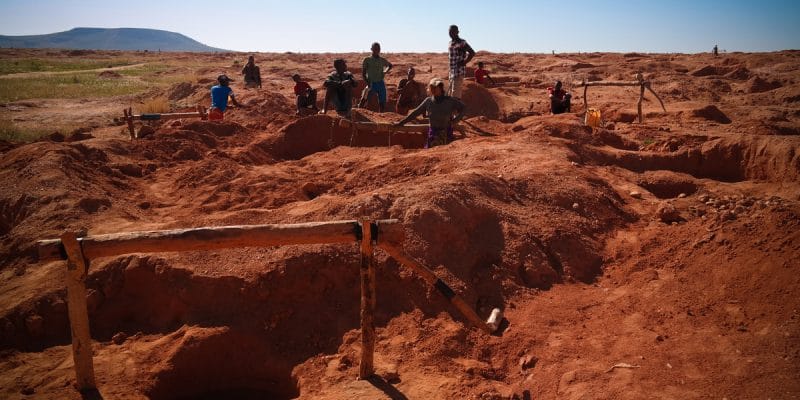It may be located 6,500 miles from the capital of the European Union, Brussels, but this West African country holds the key to a zero-emissions future the bloc seeks.
Last week, the EU proposed an effective ban on the sale of new petrol and diesel cars from 2035 as the body seeks to speed up the switch to zero-emission electric vehicles, part of a larger movement to combat global warming.
But without Guinea, a West African country with a population of 12.7 million, this plan is unattainable.
In 2019, car manufacturers used nearly a fifth of all aluminum consumed worldwide. And by 2050, they are forecast to double their consumption, driven by the transition to electric vehicles.
More than half the aluminum used by the auto industry is produced from bauxite, of which Guinea has the world’s largest deposits. Guinea is the leading exporter of bauxite in the world.
The bauxite industry in the country is dominated by two firms, Société Minière de Boké (SMB) and Compagnie des Bauxite de Guinée (CBG). Both made up almost 60% of Guinea’s bauxite exports in 2020.
SMB is a consortium between the world’s largest aluminum producer, China Hongqiao Group, Singaporean shipping company Winning International Group, and Guinean logistics company United Mining Services International. CBG is a joint venture between the Guinean government, Rio Tinto, Alcoa, and Dadco.
For many Guineans though, the presence of a coveted jewel in the push for greener technologies hasn’t helped them. Promises of better standards of living by mining companies have remained just that and the country is among the poorest in the world. In 2018, the World Bank estimated that 43.7% of Guineans live below the national poverty line, equivalent to 5.8 million people.
But it is not just on the economic front that Guinea is suffering. A new report released on Thursday by the Human Rights Watch (HRW) and Inclusive Development International (IDI) illustrates how the push for greener technologies has led to vast human rights abuses and the destruction of Guinea’s ecosystem.
The 63-page report titled, “Aluminum: The Car Industry’s Blind Spot –Why Car Companies Should Address the Human Rights Impact of Aluminum Production” describes the global supply chains that connect car manufacturers to mines, refineries, and smelters from countries like Guinea, Brazil, China, Malaysia, Australia, and Ghana.
HRW and IDI say that based on meetings and correspondence with nine major car companies – BMW, Daimler, Ford, General Motors, Groupe PSA (now part of Stellantis), Renault, Toyota, Volkswagen, and Volvo – they assessed how the auto industry addresses the human rights impacts of aluminum production, from the destruction of farmland and damage to water sources caused by mines and refineries to the significant carbon emissions from aluminum smelting.
It is Guinea though that has suffered the most from the aluminum drive. A government study in 2019 predicted that over the following 20 years a bauxite mining boom would remove 858 square kilometers of agricultural land and destroy more than 4,700 square kilometers of natural habitat.
80% of residents who rely on agriculture for their livelihoods would be severely affected.
Kounssa Bailo Barry, a Guinean farmer, and activist, estimated in January 2021 that a bauxite mine owned by a joint venture of the multinational mining giants Rio Tinto, Alcoa, and Dadco had destroyed 80% of his village’s farmland.
“Everything about Fassaly that made it a village is gone, and we don’t benefit from what caused it,” he said. Barry’s village and 12 other communities are currently engaged in a mediation process with the mining firms.
Experts say that bauxite mining can contaminate rivers by removing vegetation and increasing erosion. Research carried out by IDI in 2019 backs that claim. It found that CBG’s operations had polluted or destroyed 91 water sources that were serving 17 villages.
There was palpable relief in August 2019 when a Swiss prosecutor charged French-Israeli billionaire Beny Steinmetz of paying $10 million in bribes to the wife of former Guinean President Lansana Conte, and others, to win mining rights in the southeastern Simandou region, widely believed to contain the world’s biggest untapped iron-ore deposit.
The incident was a major win for those who had urged the government to rein in the mining sector. Now HRW and IDI say that car companies must ensure that binding human-rights and environmental standards are built into their procurement contracts and require suppliers to do the same.
Until then, Europe’s drive to cut carbon emissions will continue having a detrimental effect on the farmers struggling to eke out a living in Guinea.

